7 Principles of Gardening
Excerpted from "Gardening at the Dragon's Gate."
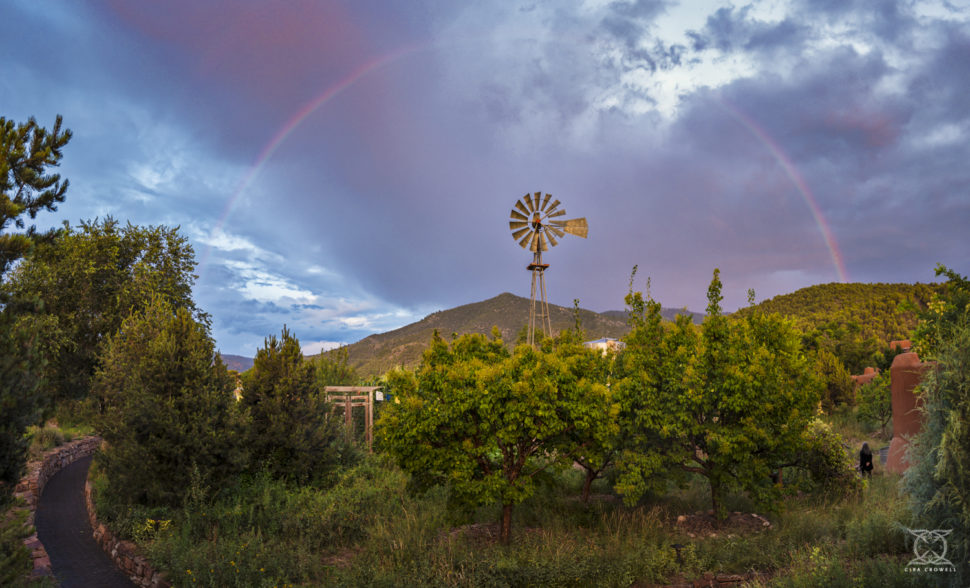
1. Learn from the Wild
My first principle is to learn gardening from the wilderness outside the garden gate. As I work to keep the links alive between the wild land and the cultivated row, I get my clearest gardening instruction from listening to the voice of the watershed that surrounds our garden. I know that January is the time to prune our Japanese ‘Elephant Heart’ plum in the garden, but just when in January is always linked to noticing when the first white blossoms appear on the wild plum tree. I mark it on my calendar and sharpen my red pruning shears, because in two weeks the ‘Elephant Heart’ plum will flower in turn.
In honor of wildness inside and outside the garden gate, every spring I leave a random corner of our garden untended. I let it go into a neglected tangle. Throughout the growing season I pass by this fallow spit of wildness and it feeds my somewhat fierce soul. In early autumn, when I am obsessed with our latest harvest of slim, white-stockinged leeks and golden beets, I look across the ordered rows of the garden to that far tangle of seedy cow parsnip and dry skunkweed and my wild roots stir back to life.
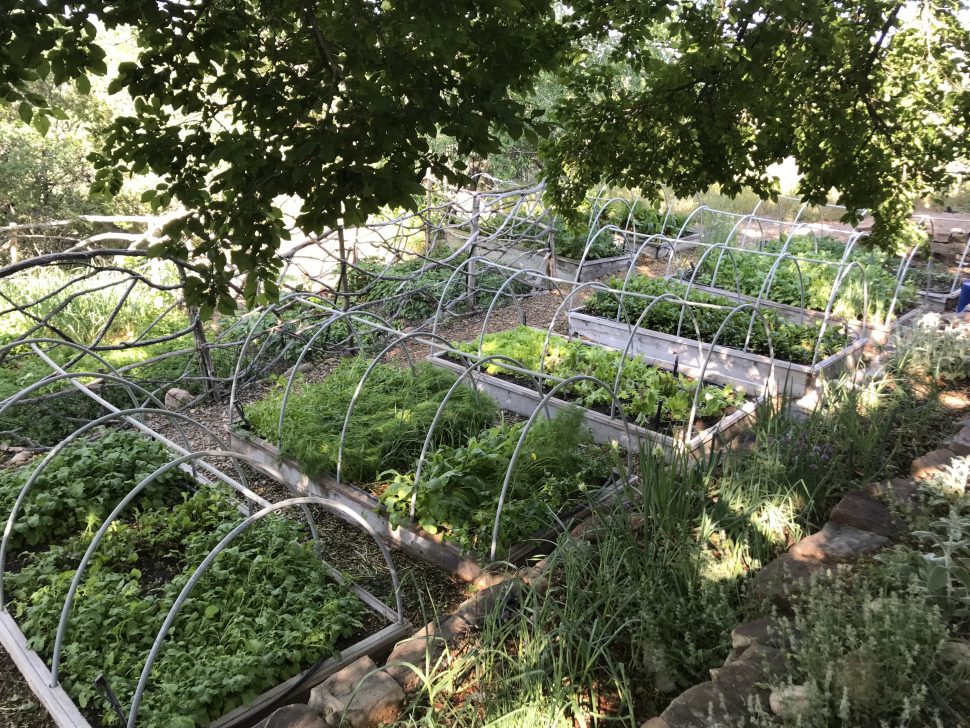
2. Garden Organically
My second principle is to garden organically, always within the ample embrace of nature, without relying on chemical fertilizers, pesticides, or herbicides. Organic gardening and ecological farming is rooted in and encourages local stewardship and protection of land and water resources; it works in harmony with natural ecosystems to sustain diversity, complexity, and real health in the garden and in the wider community. Even now when organic gardening is no longer considered a marginal endeavor, it is essential to support organic farms and farmers in order to assure food security and safety over the long haul. Growing food organically and eating conscientiously are political acts that help to establish and ensure social, economic, and ecological justice.
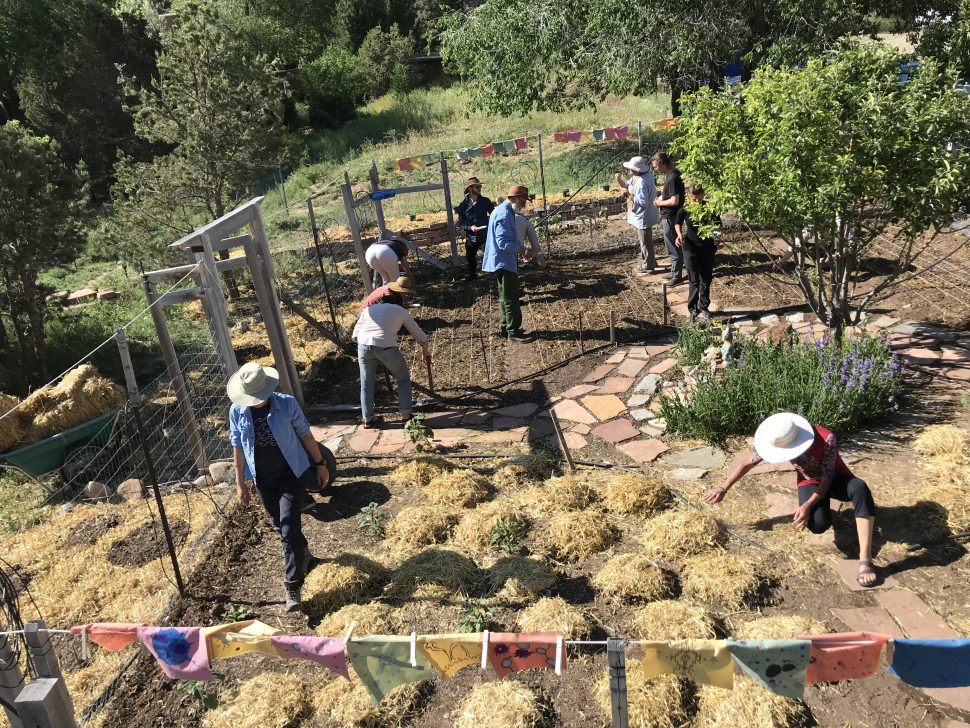
3. Know the Soil
My third principle is to know the soil where I work in every way. Composed of clouds of countless, invisible microorganisms digesting the land and running it through their intestines, soil is feces, and within the body of soil, all beings garden. Remembering as I work that there are more microorganisms in one cup of fertile garden soil than there are human beings on the planet Earth, I have a fresh view of my own scale and context in the life of the garden.
To know your soil is to work with the land and to let the land work you as well. How you cultivate your ground depends on you — maybe you will dig down deep like a joyous, unleashed dog and mound up your garden as we love to do at Green Gulch, or perhaps you will choose to create a long-term, slow-pulsed permaculture garden with soil that is hardly moved at all. What matters most is that you are in relationship with your land and listening to the soil as you work, finding your true place in the body of your garden.
4. Feed the soil
My fourth principle is to feed the soil and to work to build fertile land, not just to grow crops. An old Japanese proverb says a poor farmer grows weeds, a mediocre farmer grows crops, and a good farmer grows soil. Organic gardeners “grow soil” by planting a green mantle of cover crops on the ground to build fertility year round. We also cultivate deep-rooted crops like Burdock and American sweet clover, which break up hardpan and consolidate minerals and nitrogen in their roots. Sometimes we help build fertile soil by stepping back and fallowing land, letting it rest for a season or two. But most of all, we build soil by making compost piles and celebrating decay. “Life into death into life” is the organic gardener’s motto for the work happening to every compost pile built out of raw garbage and layered straw. This work is so fundamental to our gardening tradition at Green Gulch that we often joke that even though we don’t proselytize about Zen we certainly do preach the gospel of hot compost.
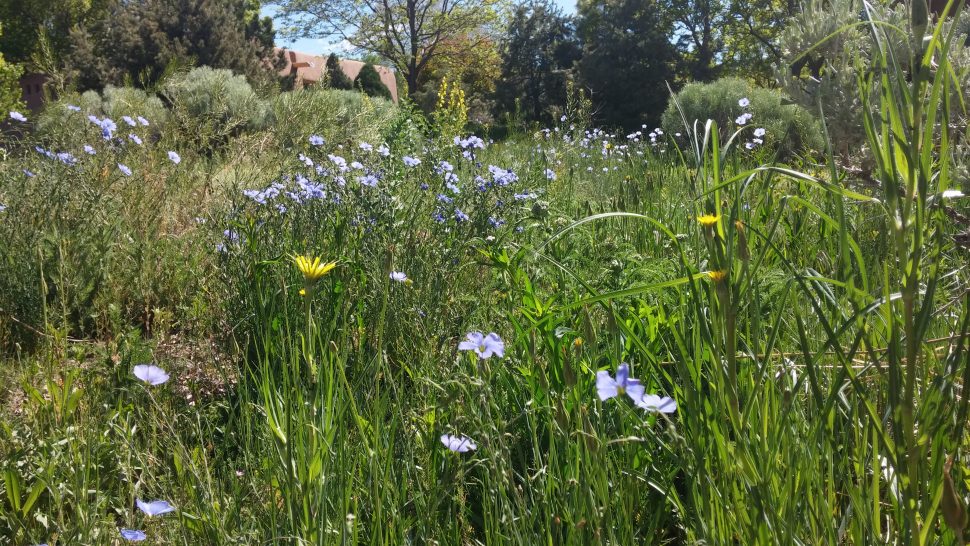
5. Welcome Diversity
My fifth gardening principle is to welcome diversity into the garden. I have a passion for preserving and culturing biological diversity in the plant kingdom — without a “king,” all plants are kin — for growing a wide range of plants from seed and for supporting small seed companies that make a special effort to protect heritage varieties. Eighty percent of all the vegetable varieties that were available in the United States in 1900 have now disappeared, due to a huge centralization of the seed trade in the hands of a very few multinational corporations. Even while I inveigh against the erosion of genetic diversity and the unmonitored modification of crops, I also remember that agriculture is 15,000 years old, grounded in biological diversity and fueled by the determination of gardeners worldwide to protect and encourage this diversity.
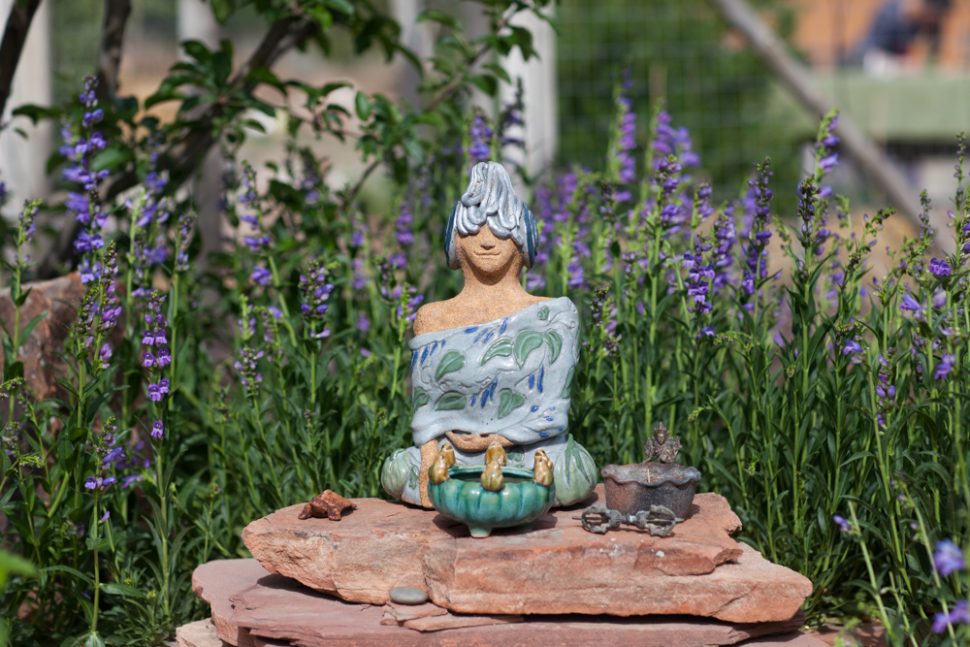
6. Invite the Unknown
My sixth gardening principle is to slow down and invite the unknown, the unwelcome, and the failed into the life of the garden. When you garden at the dragon’s gate you have no other choice but to do this, so you might as well be gracious and willing to be undone. At Green Gulch and the school and public urban plots where I garden, I work with all kinds of people. I have learned to trust and to garden with whoever shows up. We are never in control of the garden, anyway, so why not yield to the mystery of transformation? I have seen a sixty-three-year-old woman with pneumonia come back to health dead-heading white cosmos hour after hour to provide fresh flowers for the zendo altar. And I’ve witnessed an unhappy six-year-old hellion become a gallant angel by rescuing and caring for a newt about to be mangled by the garden lawn mower.
We live in a nonrepeating universe, a world where we learn as much from failure as from success. Corn-gobbling blue jays and other garden pests serve as fine teachers and so do failed ‘Easter Egg’ radishes, crimson, white, and dark purple, laid out in worm-eaten decrepitude on a chipped platter. “Life is one continuous mistake,” Shunryi Suzuki Roshi, the founder of the San Francisco Zen Center, used to remind his students. When he shopped he sought out the rattiest vegetables at market, all the discarded and maimed culls, and his meditation grew strong, nourished by the continuous mistakes of human life.
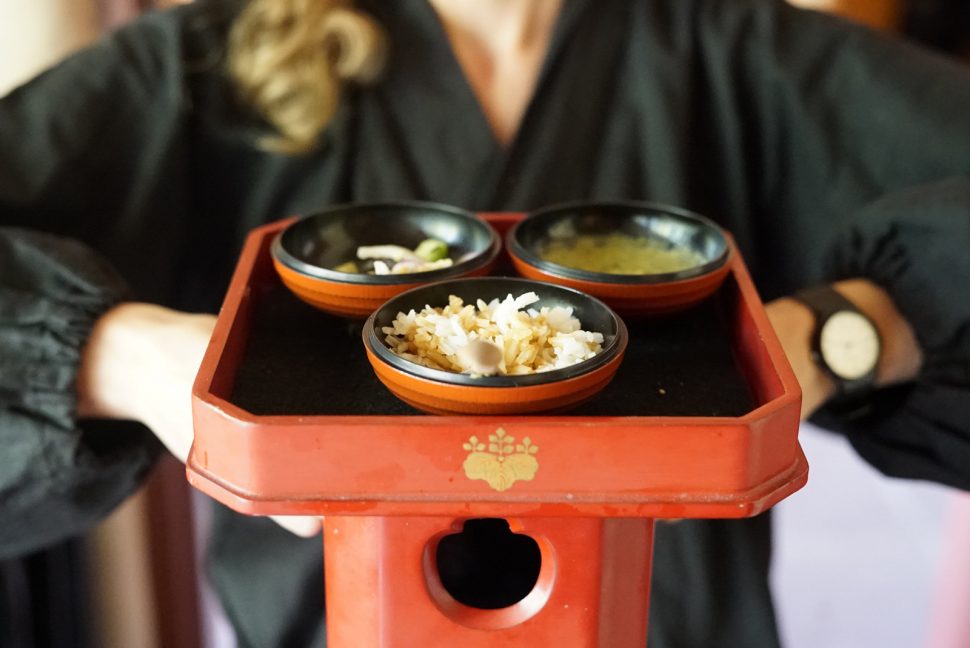
7. Be Generous with the Harvest
My seventh principle is generosity with the harvest. In the biblical book of Leviticus, one of the laws of Jewish life was not to cut the corners of the fields after the main harvest but to leave them standing so there would be food to be gleaned by the hungry, the lonely, and the stranger. I treasure this old admonition to share the bounty of the garden harvest with all beings; it reminds me not to cut corners and to garden wholeheartedly for the benefit of both the visible and the invisible hungry world.
Photos by Kigaku, Cira Crowell, Molly Watson, Ellery Kimball, and Melissa J White. Syndicated from www.upaya.org. Upaya Zen Center is a socially engaged Buddhist center in Santa Fe, New Mexico. Wendy Johnson lived and trained at Green Gulch Farm from 1975-2000. She is one of the founders of the Organic Farm and Garden Program at Green Gulch, a Lay Entrusted Teacher, and the author of Gardening at the Dragon’s Gate (Bantam, 2008). Wendy is a garden mentor to the Edible Schoolyard program and a College of Marin instructor in the Environmental Landscape program at the Indian Valley Organic Farm and Garden project.


On Nov 19, 2021 Kristin Pedemonti wrote:
Beautiful reminders for gardening and fir life. ♡
1 reply: Patrick | Post Your Reply